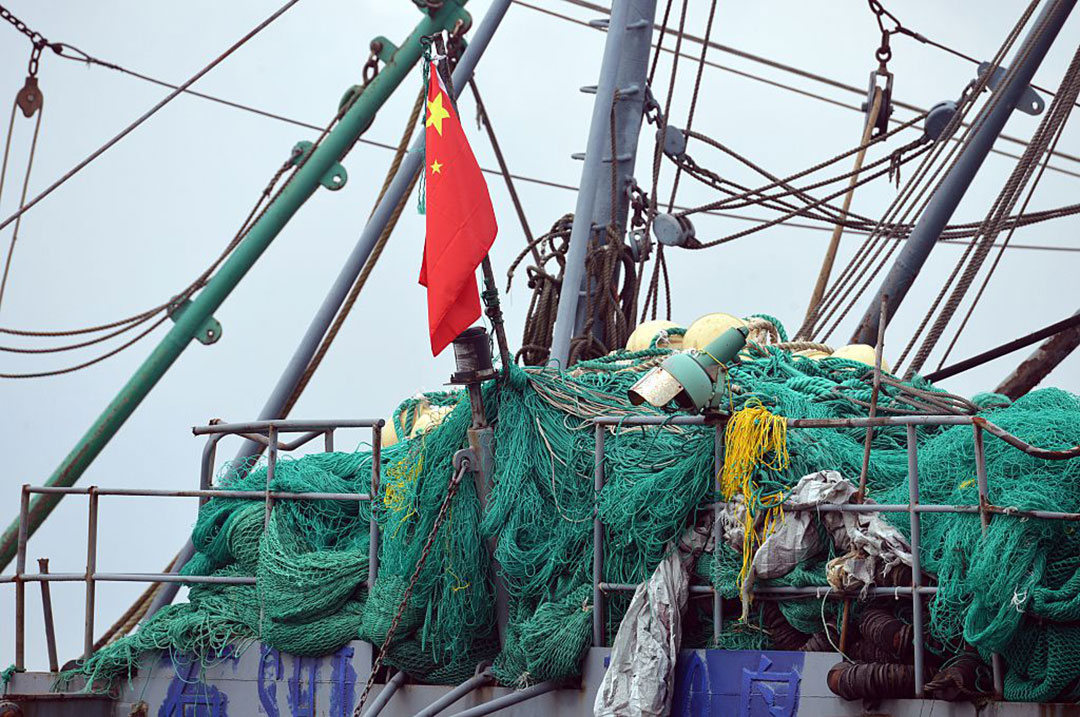Subsidies Keep China’s Fishing Fleet Afloat
ADF STAFF
The Gambia made progress in its fight against illegal, unreported and unregulated (IUU) fishing in November when authorities arrested four trawlers in waters reserved for local fishermen. The arrests were made with the help of Sea Shepherd Global.
It was no surprise that the trawlers were Chinese, as the majority of vessels arrested through Sea Shepherd’s partnership with African nations are Chinese-owned or Chinese-flagged, Peter Hammarstedt, Sea Shepherd’s director of campaigns, told ADF in an email.
China’s ability to have a global reach in fishing is due in large part to government subsidies. No other nation spends more on fishing subsidies than China, which paid $7.2 billion — about 21% of the global total — in 2018, according to a report by ScienceDirect.com.
“The most important and the largest share of subsidies for [China’s] DWF [distant-water fishing] fleet are fuel subsidies because fuel is so costly, especially when the vessels are traveling so far to fish,” Tabitha Grace Mallory, a University of Washington professor who specializes in China’s fishing policies, told ADF in an email.
“However, the government has also given considerable support for the renovation of existing fishing vessels and the construction of new fishing vessels,” allowing China’s DWF fleet to catch more fish, said Mallory, who also founded the China Ocean Institute. “Some of this money is for bringing fishing vessels up to international safety standards — in 2012, only 8% of Chinese DWF vessels met these standards.”
Chinese trawlers are notorious for using illegal fishing techniques to decimate fish populations, deprive locals of food and income, and destroy ecosystems off Africa’s coast and around the globe.
Two of the Chinese trawlers recently arrested in The Gambia were charged with double-bagging their nets, which is fishing with one net inside another one to avoid mesh-size regulations. Another vessel was charged with fishing with the incorrect mesh size.
“The Gambia implements mesh-size requirements to ensure that undersized and juvenile fish can escape, thereby conserving fish populations to mitigate overfishing,” Mar Casariego, captain of the Sea Shepherd vessel involved in the arrests, said on the organization’s website. “But at-sea patrols are needed to ensure compliance as well as deterring industrial trawlers from entering protected areas.”
Domestically, China has imposed strict fishing bans and decreased destructive trawling practices in efforts to replenish its native fish populations. A 10-year fishing ban on the 6,300-kilometer-long Yangtze River was instituted in response to a significant drop in China’s domestic fish catch, which went from 7.65 million tons in 2017 to 6.82 million tons in 2019.
“It’s not clear that the same emphasis has been given to reducing trawling in China’s DWF fleet,” Mallory said. “In more recent years, China also subsidizes the construction of DWF bases abroad, and also the transport of [fish] caught by the Chinese fleet back home to China.”
The exact number of vessels in China’s DWF fleet is hard to gauge, as many are flagged to other countries, mostly African nations, according to the Coalition for Fair Fisheries. China claims it will cap its DWF fleet at 3,000 trawlers; studies such as one by the Overseas Development Institute say the number is closer to 17,000 vessels.
Researchers say that, without subsidies, China’s DWF fleet would be a fraction of its current size. Removing the subsidies would make fish more plentiful and cheaper, especially helping poorer countries.
“If they ended the subsidies, fishing would be halved, fish stocks would quickly grow back and double in size,” Daniel Pauly, a fisheries scientist at the University of British Columbia told Foreign Policy magazine. “You could then sustainably double the original catch, which would be cheaper to fish and not require subsidies, and you wouldn’t need to farm so much fish.”


Comments are closed.